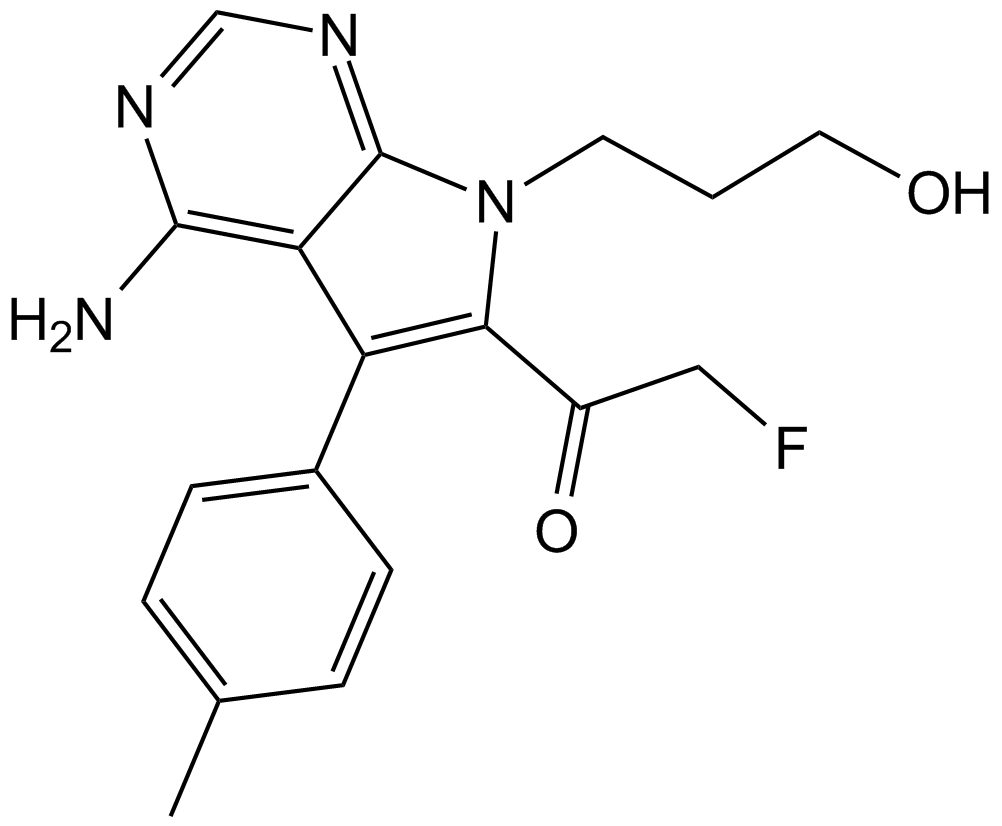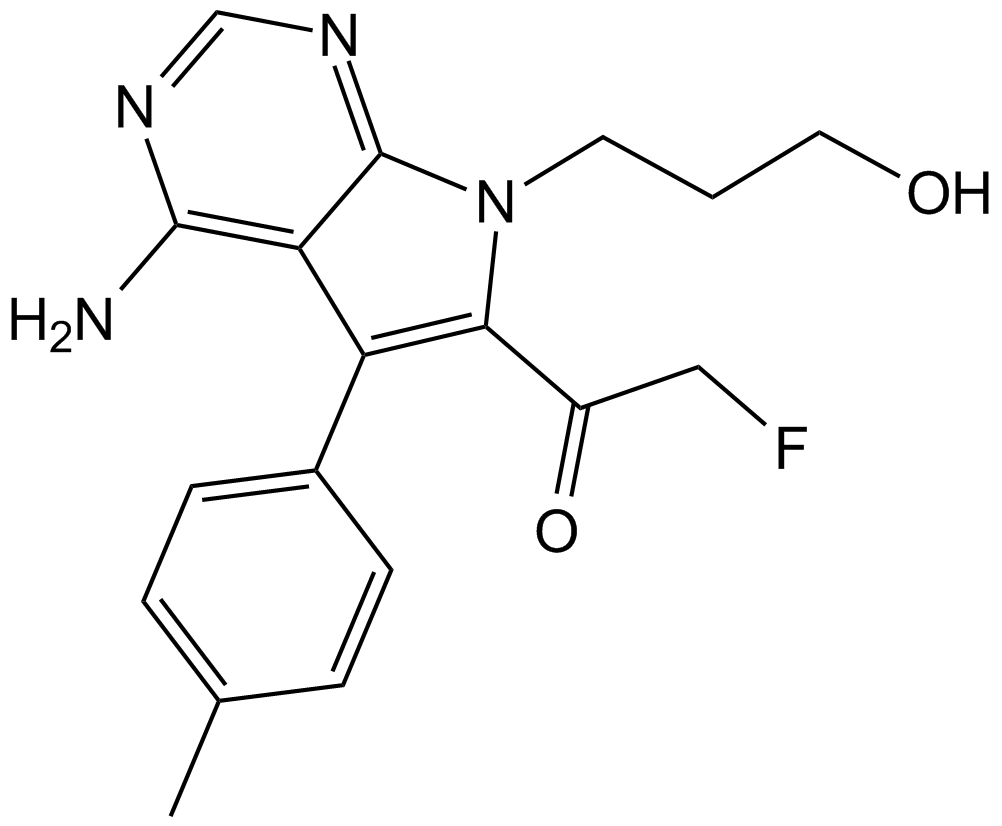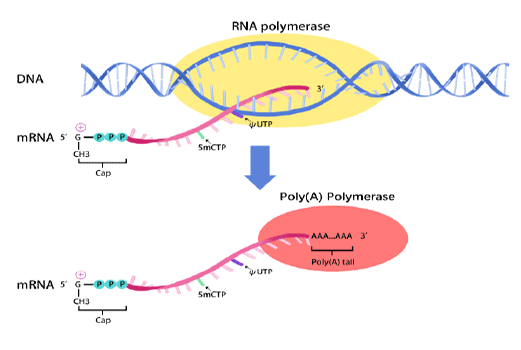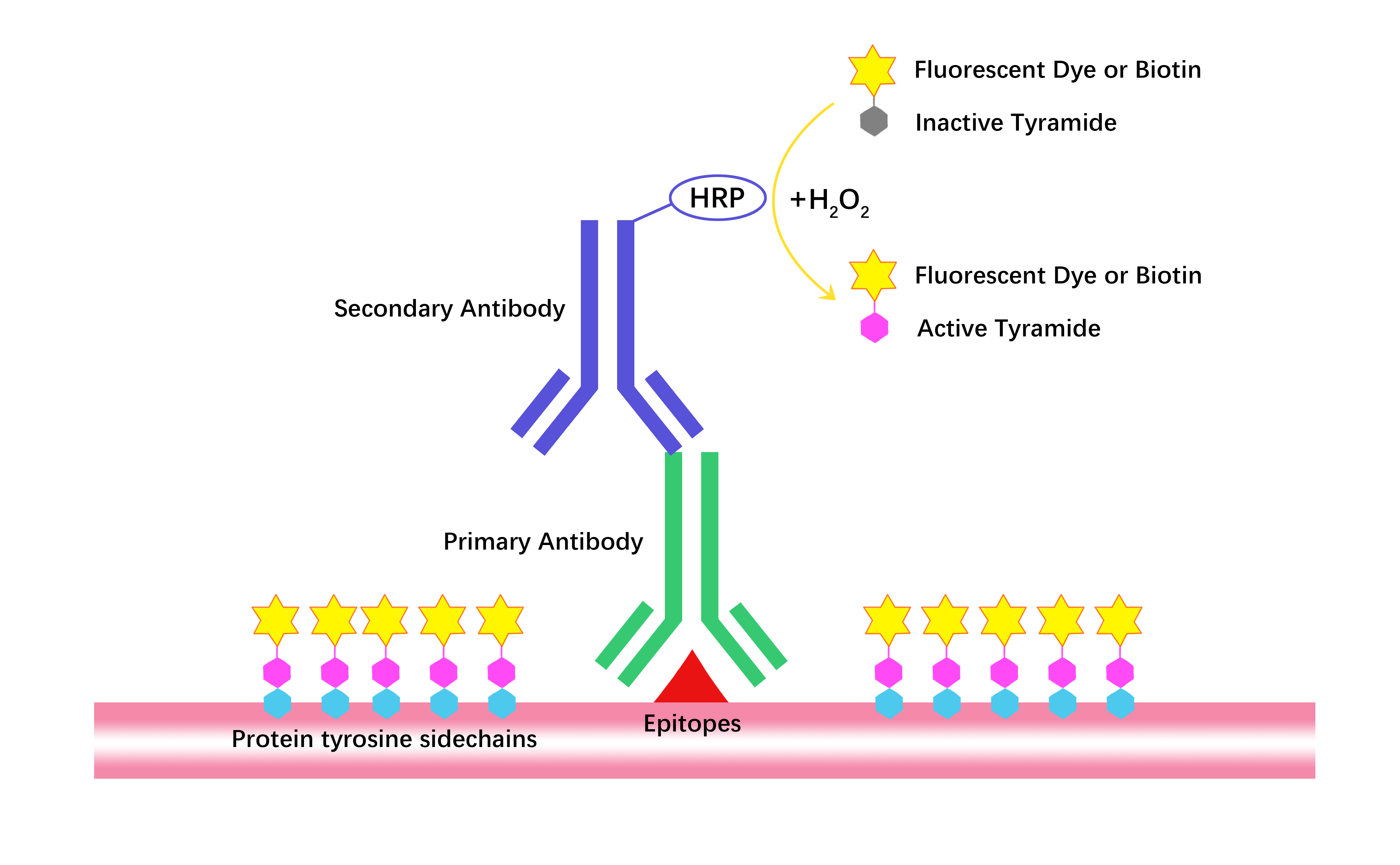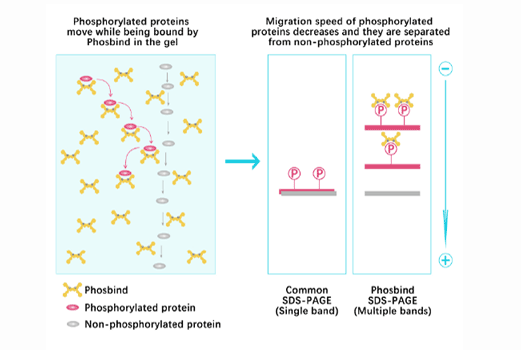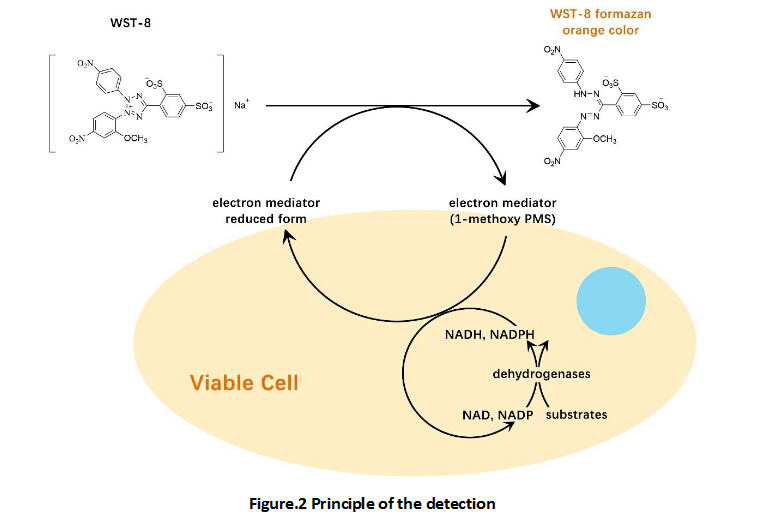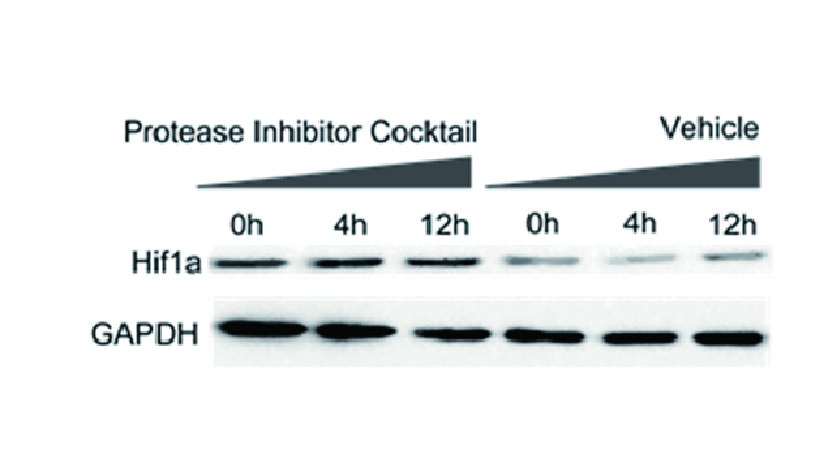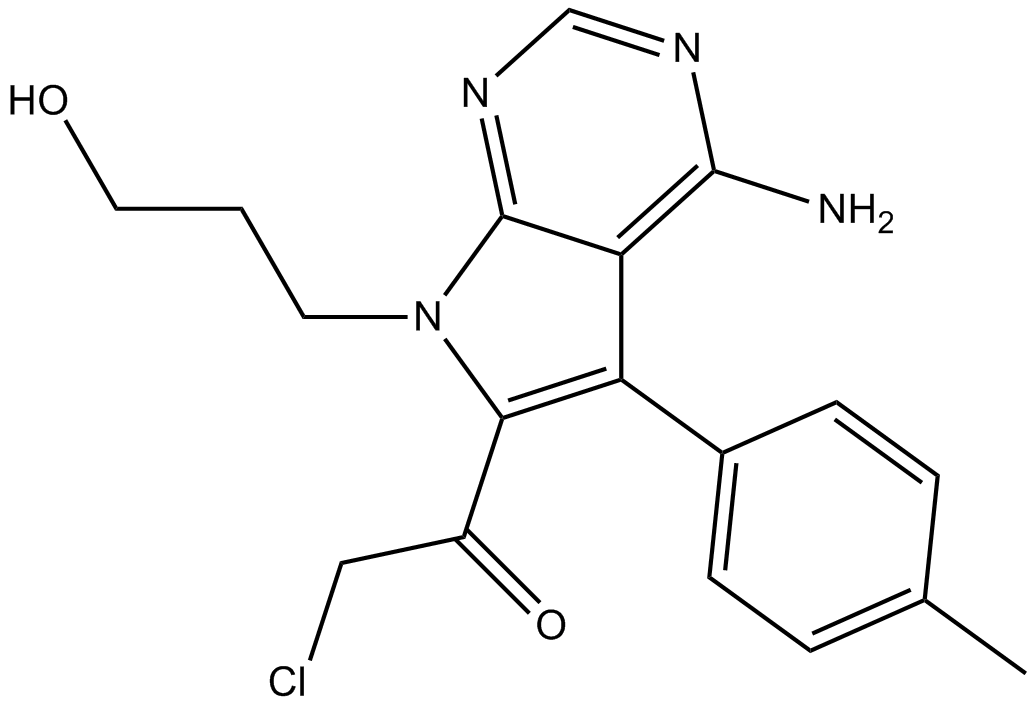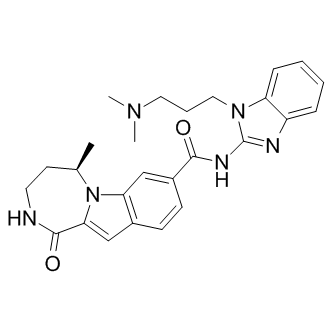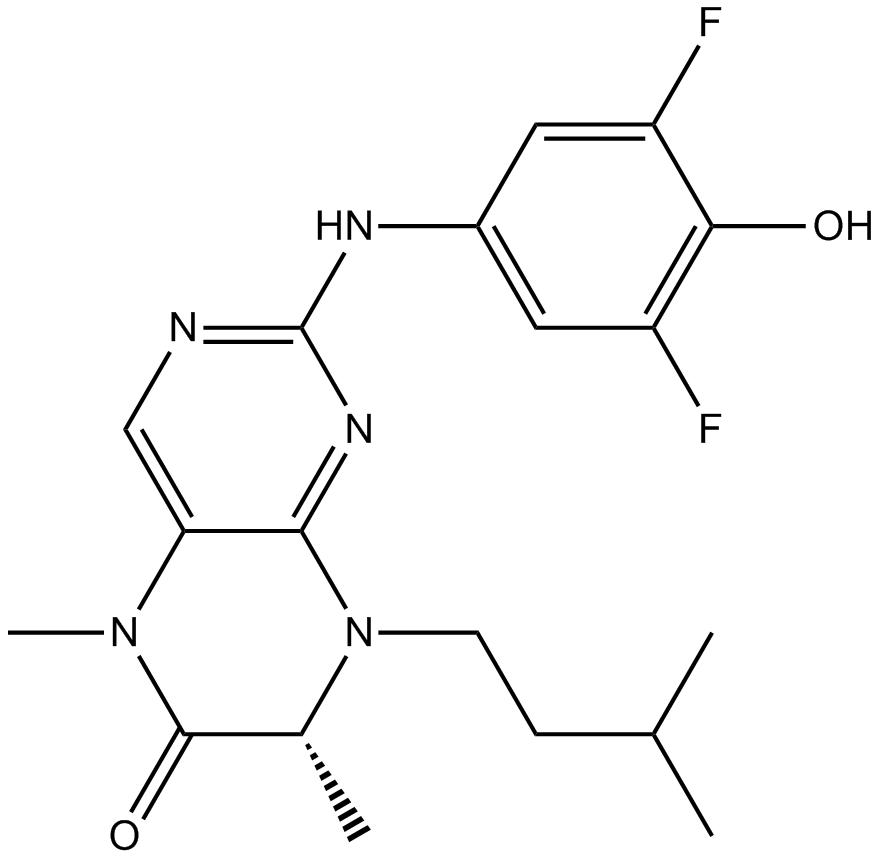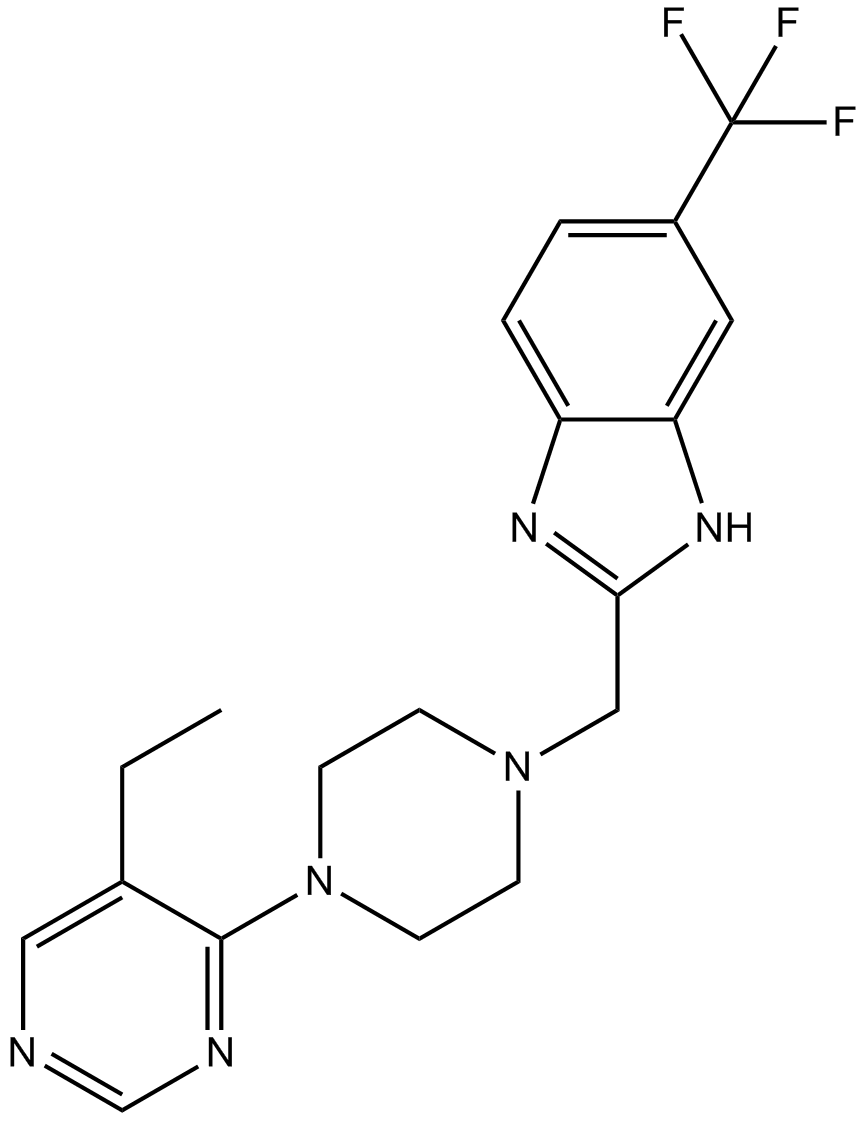FMK
FMK is a potent, highly specific and irreversible ribosomal s6 kinase (RSK) inhibitor with IC50 value of 15 nM.[1]
RSK is named for ribosomal protein s6, part of the translational machinery which are serine/threonine kinases and are activated by the MAPK/ERK pathway. There are two subfamilies of RSK, p90rsk, also known as MAPK-activated protein kinase-1 (MAPKAP-K1), and p70rsk, also known as S6-H1 Kinase or simply S6 Kinase.90 kDa ribosomal S6 kinases(p90rsk),the first substrates of ERK,is a ubiquitous and versatile mediator of ERK signal transduction which regulates protein synthesis by phosphorylation of polyribosomal proteins and glycogen synthase kinase-3 and phosphorylates the Ras GTP/GDP-exchange factor, leading to feedback inhibition of the Ras-ERK pathway.[2]
FMK is an irreversible inhibitor that covalently modifies the C-terminal kinase domain of RSK. It therefore prevents the activation of the N-terminal kinase domain of RSK by the C-terminal kinase domain, but does not affect the activity of the N-terminal domain, explaining why the active forms of RSK1 and RSK2 are not inhibited by FMK in vitro.[3] FMK,the efficacy and specificity of the irreversible RSK inhibitor in ARVMs and subsequently is used to determine the role of RSK as a direct regulator of NHE1 phosphorylation and sarcolemmal NHE activity in this cell type, in response to 1-adrenergic stimulation.[4] FMK-pa, a propargylamine variant, achieves selective and saturable modification of endogenous RSK1 and RSK2 in mammalian cells. Saturating concentrations of fmk-pa inhibited Ser386 phosphorylation and downstream signaling in response to phorbol ester stimulation, but had no effect on RSK activation by lipopolysaccharide.[5]
Metastasis, the spreading of cancer cells from a primary tumor to secondary sites throughout the body, is driven by altered signaling pathways that induce changes in cell-cell adhesion, the cytoskeleton, integrin function, protease expression, epithelial-to-mesenchymal transition and cell survival.[6] The ribosomal S6 kinase (RSK) family of kinases is a group of extracellular signal-regulated kinase/mitogen-activated protein kinase (ERK/MAPK) effectors that can regulate these steps of metastasis by phosphorylating both nuclear and cytoplasmic targets. Thus, developing RSK inhibitors as new antimetastasis drugs is urgent.Recently, RSKs have been shown to mediate many cellular functions critical for cancer progression. RSK may be an important driver in PCa progression in bone which regulates anchorage-independent growth through transcriptional regulation of factors that modulate cell survival, including ING3, CKAP2 and PTK6,resulting in promising potential as a therapeutic target for PCa bone metastasis.[7]
Reference:
1.Michael S. Cohen. et al. Structural Bioinformatics-Based Design of Selective, Irreversible Kinase Inhibitors. Science,2005,308(5726):1318-1321.
2.Frodin M, Gammeltoft S. Role and regulation of 90 kDa ribosomal S6 kinase (RSK) in signal transduction. Mol Cell Endocrinol. 1999, 151(1-2):65-77.
3.Jenny BAIN.et al. The selectivity of protein kinase inhibitors: a further update. Biochem. J. 2007, 408:297-315.
4.Cuello F.et al. Evidence for direct regulation of myocardial Na+/H+ exchanger isoform 1 phosphorylation and activity by 90-kDa ribosomal S6 kinase (RSK): effects of the novel and specific RSK inhibitor fmk on responses to alpha1-adrenergic stimulation. Mol Pharmacol. 2007, 71(3):799-806.
5.Michael S Cohen, Haralambos Hadjivassiliou1, and Jack Taunton. A clickable inhibitor reveals context-dependent autoactivation of p90 RSK. Nat Chem Biol. 2007,3(3): 156-160.
6.Sulzmaier FJ1, Ramos JW. RSK isoforms in cancer cell invasion and metastasis.Cancer Res. 2013,73(20):6099-105.
7.Yu G, Lee YC1. et al. RSK Promotes Prostate Cancer Progression in Bone through ING3, CKAP2 and PTK6-mediated Cell Survival. Mol Cancer Res.2014,0384.
| Physical Appearance | A solid |
| Storage | Store at -20°C |
| M.Wt | 342.37 |
| Cas No. | 821794-92-7 |
| Formula | C18H19FN4O2 |
| Synonyms | fluoromethylketone-pyrrolopyrimidine scaffold |
| Solubility | insoluble in H2O; ≥17.1 mg/mL in DMSO; ≥28.7 mg/mL in EtOH |
| Chemical Name | 1-[4-amino-7-(3-hydroxypropyl)-5-(4-methylphenyl)pyrrolo[2,3-d]pyrimidin-6-yl]-2-fluoroethanone |
| SDF | Download SDF |
| Canonical SMILES | Cc(cc1)ccc1-c1c(C(CF)=O)[n](CCCO)c2c1c(N)ncn2 |
| Shipping Condition | Small Molecules with Blue Ice, Modified Nucleotides with Dry Ice. |
| General tips | We do not recommend long-term storage for the solution, please use it up soon. |
| Cell experiment [1]: | |
|
Cell lines |
Ba/F3 cells, FGFR3-expressing myeloma cell lines KMS11 |
|
Preparation method |
The solubility of this compound in DMSO is >17.1mg/mL. General tips for obtaining a higher concentration: Please warm the tube at 37 ℃ for 10 minutes and/or shake it in the ultrasonic bath for a while. Stock solution can be stored below -20℃ for several months. |
|
Reacting condition |
0.5-10 μM, 16 and 24 hr |
|
Applications |
FMK effectively inhibited FGFR3 TDII and TEL-FGFR3-induced IL-3-independent growth of Ba/F3 cells in a dose-dependent manner. RSK inhibitor fmk inhibits cytokine-independent proliferation of Ba/F3 cells conferred by FGFR3. Fmk induced significant apoptosis in fgfr3-expressing, t(4;14)-positive human myeloma cell lines and primary human myeloma cells. |
|
Other notes |
Please test the solubility of all compounds indoor, and the actual solubility may slightly differ with the theoretical value. This is caused by an experimental system error and it is normal. |
|
References: [1]. Kang S, Dong S, Gu T L, et al. FGFR3 activates RSK2 to mediate hematopoietic transformation through tyrosine phosphorylation of RSK2 and activation of the MEK/ERK pathway[J]. Cancer cell, 2007, 12(3): 201-214. |
|
| Description | FMK is a potent, highly specific and irreversible inhibitor of p90 ribosomal protein S6 kinase RSK1 and RSK2. | |||||
| Targets | RSK1 | RSK2 | ||||
| IC50 | 15 nM | |||||
Quality Control & MSDS
- View current batch:
Chemical structure
